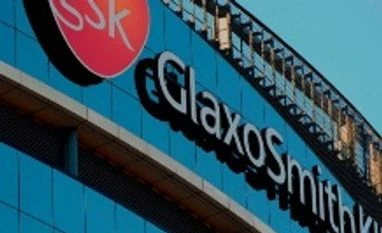The GlaxoSmithKline Pharma (GSK Pharma) stock, which has been on the rise since mid-December (when its foreign parent announced plans to raise its stake in the company), hit an all-time high of Rs 3,054.4 on Monday. Though it shed some gains on Tuesday, at current levels of Rs 2,970, it is still close to the open offer price of Rs 3,100 and up 20 per cent since the open offer was announced on December 13.
The rise in the stock provides a good exit opportunity to short-term investors, given the company’s disappointing performance for the last two quarters and the muted near-term outlook, say analysts.
The open offer is aimed at acquiring 20.6 million shares, or 24.3 per cent of the overall outstanding shares. GlaxoSmithKline Plc, the London-listed parent of GSK Pharma that holds 50.67 per cent stake in the Indian company, plans to invest Rs 6,390 crore to raise its stake to 75 per cent. The open offer, which began on February 18, will close on Wednesday.
“The offer by the parent company for GSK Pharma is attractively priced and investors should take this opportunity and tender their shares. The open offer comes at a time when the company’s financial performance has shown a downfall on account of the new pharmaceutical pricing policy, rising competition, higher input costs and the rupee’s depreciation,” said Dinker Shanbhag, head (institutional equities), Lotus Global Equities.
In its report after the announcement of GSK Pharma’s fourth-quarter results, Nomura recommended investor to participate in the open offer.
Axis Capital, too, had a ‘sell’ rating, with a target price of Rs 1,783 in the short term. Deepak Khetan, vice-president (life sciences), Axis Capital, said, “The domestic formulation growth was impacted due to trade unrest and price cuts across the industry. But the sector has started witnessing gradually recovery from January 2014. We believe growth rates will normalise in FY15.” An Axis Capital report said the new pricing policy and the thrust on the pure generics sector in a few states would maintain pressure on growth and margin for GSK Pharma.
Analysts believe the company will continue to feel the heat for two more quarters, before the low base effect comes into play. Consequently, they have cut their earnings estimates. Long-term investors could stay put, as the buyback also indicates the parent company’s strong commitment towards its Indian arm. GSK Pharma had also announced investment of Rs 900 crore to set up a manufacturing facility in India, which would double its capacity, the benefits of which would accrue after it is commissioned by 2017.
The rise in the stock provides a good exit opportunity to short-term investors, given the company’s disappointing performance for the last two quarters and the muted near-term outlook, say analysts.
The open offer is aimed at acquiring 20.6 million shares, or 24.3 per cent of the overall outstanding shares. GlaxoSmithKline Plc, the London-listed parent of GSK Pharma that holds 50.67 per cent stake in the Indian company, plans to invest Rs 6,390 crore to raise its stake to 75 per cent. The open offer, which began on February 18, will close on Wednesday.
“The offer by the parent company for GSK Pharma is attractively priced and investors should take this opportunity and tender their shares. The open offer comes at a time when the company’s financial performance has shown a downfall on account of the new pharmaceutical pricing policy, rising competition, higher input costs and the rupee’s depreciation,” said Dinker Shanbhag, head (institutional equities), Lotus Global Equities.
In its report after the announcement of GSK Pharma’s fourth-quarter results, Nomura recommended investor to participate in the open offer.
Axis Capital, too, had a ‘sell’ rating, with a target price of Rs 1,783 in the short term. Deepak Khetan, vice-president (life sciences), Axis Capital, said, “The domestic formulation growth was impacted due to trade unrest and price cuts across the industry. But the sector has started witnessing gradually recovery from January 2014. We believe growth rates will normalise in FY15.” An Axis Capital report said the new pricing policy and the thrust on the pure generics sector in a few states would maintain pressure on growth and margin for GSK Pharma.
Analysts believe the company will continue to feel the heat for two more quarters, before the low base effect comes into play. Consequently, they have cut their earnings estimates. Long-term investors could stay put, as the buyback also indicates the parent company’s strong commitment towards its Indian arm. GSK Pharma had also announced investment of Rs 900 crore to set up a manufacturing facility in India, which would double its capacity, the benefits of which would accrue after it is commissioned by 2017.
)